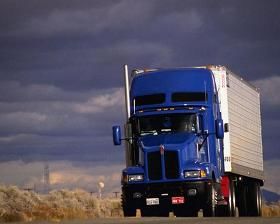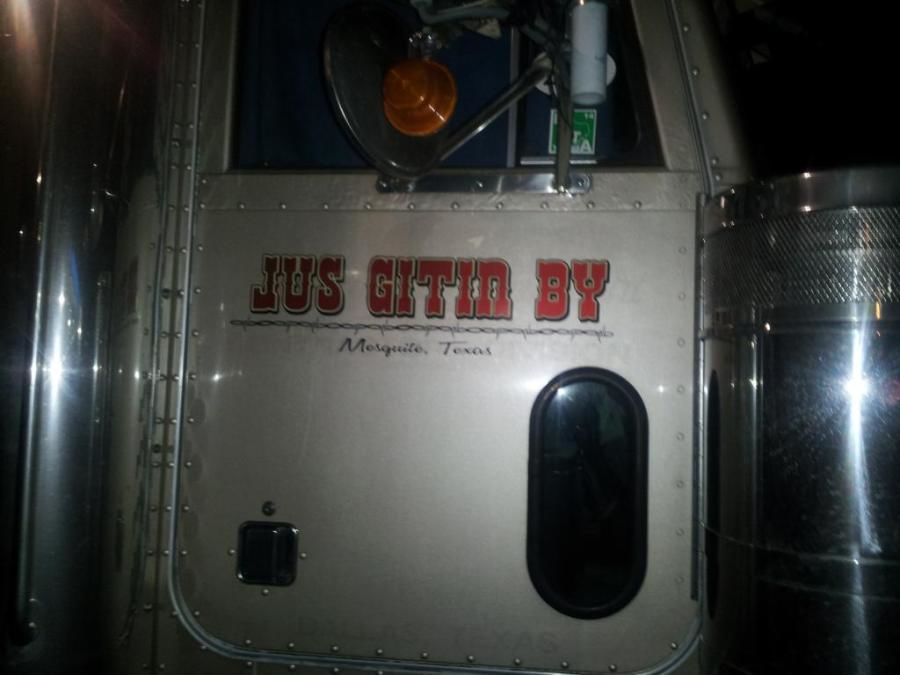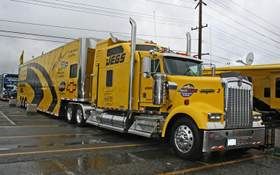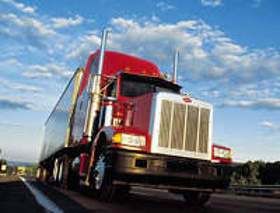Lease-purchase: Sounds Like A Good Deal, Right?
Topic 9202 | Page 1

Excellent report Anchorman! It seems to validate what the experienced TT drivers and Brett repeatedly have to say: Don't lease and drive.

Authored by, numerous individuals at TT.....

Anchorman, it sounds like you are very well versed regarding lease purchase. And thanks for all of the great information. Say a driver really wants to own his own rig, do you have any details regarding the other method of becoming an owner.... Which I guess would be to visit a dealership and buy a new or used tractor. I am new to this career, but already I see many owner/operator and owner/contract trucks out here, so there must be some advantages. Thanks.
Papa G.
I was in a private business for thirty years before I started driving a truck for a second career. I owned six big rigs at one time. You are new to all this, but let me warn you that there has been a huge decline in the last two decades of owner/operators or independent drivers. There is a reason for that, the economics of trucking are tilted in the favor of the mega carriers right now. And if you are paying attention, most of them are trying to lease their rolling assets out to folks like you who think there must be an advantage to operating that way. The biggest "hole in the bucket" in trucking is the ownership of the trucks. That economic fact is the reason that there are so many companies out there advertising for owner/operators. When these trucking companies can get out from under the problems associated with that part of the business plan they can control their costs and make plenty of money with logistics services for their customers, and services and sales that they provide to their drivers with the discounts on tires, maintenance, and fuel that they can muscle into because of the sheer volume of purchasing that they can do.
If you will pay attention to the owner operators that you see you will begin to notice that most of them are driving very old tucks that really should have been replaced several years ago. You will occasionally see someone with a bright shiny new rig or a really cool looking customized rig, but those are few and far between now days. I'm not an advocate for being an owner operator , even though I am an experienced business person, and a very independent type of person. I am a capitalist at heart, an entrepreneur in spirit, but the reality check I got when I tried to put a business plan together as an owner operator when I first was breaking into trucking was shocking - I found that I couldn't make a dime, no matter how I juggled the numbers around. The truck ownership is the riskiest part of the equation, and the large carriers are glad to pass it off onto the unsuspecting drivers who are seeking a way to put a little more into their wallets. That information that Anchorman submitted comes from OOIDA - the foremost owner operator association - if they don't think well of it you should take notice!
I'm not saying it can't be done, but I will tell you that there are about nine losers to every one winner in this game - the profits are dismal, and that one winner isn't doing anything that's worth writing home about.
Don't make the mistake of the owner operator I met one day who named his independent trucking business after the truth of what was happening on his balance sheet - at least he was an honest owner operator!

Owner Operator:
An owner-operator is a driver who either owns or leases the truck they are driving. A self-employed driver.
BMI:
Body mass index (BMI)
BMI is a formula that uses weight and height to estimate body fat. For most people, BMI provides a reasonable estimate of body fat. The BMI's biggest weakness is that it doesn't consider individual factors such as bone or muscle mass. BMI may:
- Underestimate body fat for older adults or other people with low muscle mass
- Overestimate body fat for people who are very muscular and physically fit
It's quite common, especially for men, to fall into the "overweight" category if you happen to be stronger than average. If you're pretty strong but in good shape then pay no attention.
OOIDA:
Owner-Operator Independent Drivers Association
Who They Are
OOIDA is an international trade association representing the interests of independent owner-operators and professional drivers on all issues that affect truckers. The over 150,000 members of OOIDA are men and women in all 50 states and Canada who collectively own and/or operate more than 240,000 individual heavy-duty trucks and small truck fleets.
Their Mission
The mission of OOIDA is to serve owner-operators, small fleets and professional truckers; to work for a business climate where truckers are treated equally and fairly; to promote highway safety and responsibility among all highway users; and to promote a better business climate and efficiency for all truck operators.
HOS:
Hours Of Service
HOS refers to the logbook hours of service regulations.
I agree with Old School. This story was published by the Business Services Department of the Owne Operator Independent Drivers Association. The Owner-Operator Independent Drivers Association is the international trade association representing the interests of independent owner-operators and professional drivers on all issues that affect truckers. The over 150,000 members of OOIDA are men and women in all 50 states and Canada who collectively own and/or operate more than 240,000 individual heavy-duty trucks and small truck fleets. Like Old School said, if they don't think well of it you should take notice!
OOIDA:
Owner-Operator Independent Drivers Association
Who They Are
OOIDA is an international trade association representing the interests of independent owner-operators and professional drivers on all issues that affect truckers. The over 150,000 members of OOIDA are men and women in all 50 states and Canada who collectively own and/or operate more than 240,000 individual heavy-duty trucks and small truck fleets.
Their Mission
The mission of OOIDA is to serve owner-operators, small fleets and professional truckers; to work for a business climate where truckers are treated equally and fairly; to promote highway safety and responsibility among all highway users; and to promote a better business climate and efficiency for all truck operators.

Many times one or more of the parties who enter into a contractual lease agreement fail to put due consideration on §376.12(d) and (e). Another area often glazed over without consideration or negotiation is §376.12(k)(2) through (6). The Federal regulations are somewhat clear – but most people would do themselves right with a legal review. Arming yourself with knowledge from an OOIDA O/O specialist or attending O/O seminar’s to get a feel of what you would be getting into is a much better path then just jumping in without regard to the financial safety and security of your estate. EXAMPLE: §376.12(d) is compensation – i.e. what you get paid for, and how much. You can put nothing in this section and the lessor will not be required by law to pay you anything at all. You can also define compensation like this: your detention pay starts at exactly 60 minutes and 00 seconds of sitting idle on the receiver’s property after reporting your arrival with cargo and requesting material be unloaded, that the Lessor is responsible for detention compensation at a rate of $25.00/hr. This can further be defined as adequate, proper, and reasonable notification by electronic device or voice-comm indicating status of cargo and readiness by you (the lessee) for it to be unloaded.
I have heard the complaints from individuals about how they are not getting paid for what they think they should be, ask to see the lease - and under §376.12(d) – there is very little spelled out – only a perfunctory clause which illuminates one or two small compensatory actions to be carried out by the Lessor. Some of these contracts I have seen made me think my cat negotiated the terms. All I could really do is just roll my eyes and recommend termination via Impossibility to perform or in worse cases Rescission with minimized clause compensation.
OOIDA has the ability to review and comment on a lease. If you want a 3rd party review by an actual attorney so you can get a better assessment of potential success or failure - by all means do it - retain legal assistance and get the plain language spelled out. You would be best served speaking with a practicing attorney who actually passed the bar and can explain the elements of a contract.
If a Lessor is telling you the document cannot be taken off the desk for 3rd party review – walk away.
OOIDA:
Owner-Operator Independent Drivers Association
Who They Are
OOIDA is an international trade association representing the interests of independent owner-operators and professional drivers on all issues that affect truckers. The over 150,000 members of OOIDA are men and women in all 50 states and Canada who collectively own and/or operate more than 240,000 individual heavy-duty trucks and small truck fleets.
Their Mission
The mission of OOIDA is to serve owner-operators, small fleets and professional truckers; to work for a business climate where truckers are treated equally and fairly; to promote highway safety and responsibility among all highway users; and to promote a better business climate and efficiency for all truck operators.
New Reply:
New! Check out our help videos for a better understanding of our forum features

















Preview:
This topic has the following tags:
Leasing A Truck Owner Operator







 TT On Facebook
TT On Facebook
Lease-purchase: Sounds like a good deal, right?
There continues to be an alarming increase in people signing on to lease-purchase programs with large motor carriers. Our experience in reviewing these contracts and receiving numerous complaints over the years tells us these programs almost never benefit anyone except the motor carriers and should be avoided.
Admittedly, at first glance a lease-purchase agreement can seem attractive with no credit check, no down payment and the truck payment generated from load pay.
Sounds like a good deal, right?
Well, what may not be clear if you fail to read the fine print is that if you sign one of these, you will have no ownership rights until the truck is paid off. One real big catch is that the truck must remain leased with the company that “owns” it – meaning the motor carrier. You are basically tied to that company and unable to drive the truck wherever you want. Also, truck payments are usually deducted weekly instead of monthly. The truck payment is taken out before you receive your paycheck even if it means you receive a negative check.
That’s just a start. Typical complaints we receive include:
~ Truck needs constant repairs
~ Never receive a paycheck
~ Miles have been cut
~ No paycheck and getting further behind with the company
~ Can’t generate enough money while the company refuses to let you move the truck
~ Returned the truck to go back to working as a company driver, but the carrier is still charging payments on the truck
~ Company requires a separate maintenance (escrow) account, but you never get to use it when the truck needs repairs. There may be other escrow accounts, too
Over the years, we have dealt with carriers that leased out trucks on which they did not hold titles. Some carriers that filed bankruptcy or simply closed their doors would often leave the equipment unsecured or paid for which meant the lessee lost the truck and all the money already paid toward it.
In one case, we dealt with a company that charged unbelievable repairs on equipment they took back after a default, but never made the repairs, plus, the repair bills were generated from their company shop. This same company would continue to charge lease payments to the original lessee on equipment they had already leased to another driver from whom they were collecting new payments as well. When the original drivers refused to pay and demanded the maintenance and escrow money back, they were provided with bills showing outstanding balances owed to the company. This company even went a step further by turning in these outstanding debts over to a collection agency. Still to this day the drivers that entered this particular lease purchase program through this company are fighting the effects of a bad credit score.
Probably the best way to avoid being ripped off in a lease purchase situation is to not enter into one, but if you still think you can be one of the rare success stories, here are some things you should check before you sign the dotted line.
1. Run the numbers. In most cases, if you are lucky enough to complete the lease you may owe more for the equipment than it is worth.
2. Ask about the title. Does the company have clear title or is the equipment financed?
3. Is the finance company aware the equipment is being leased?
4. What assurances can they give you that when you make your payments, they will make theirs?
5. How many lessees has the equipment had? (This is a big one, if other drivers were in a lease on this equipment what happened to them?)
6. Check the mileage. Does it make sense for the year of the truck?
7. Ask for maintenance records.
8. Ask about freight availability. You can also check into the availability by talking to drivers before you have your meeting with the company.
9. Beware of companies that have a company driver fleet as well as lease purchase fleet. The company pays the expenses on company trucks so those trucks will be dispatched first and for the best loads.
10. What items are going to be charged back to you besides the truck payment? You need the cost breakdown, not just the list of items. Then, run the numbers again. Determine how much revenue you will need to generate each week to keep your head above water, then balance that out with the number of miles you will realistically be dispatched.
11. Review the contract completely, understanding each and every condition specified in it. Watch for additional charges that will be assessed for excessive mileage or clauses that allow the company to take the equipment back should you default. Be sure to understand the conditions that warrant a default.
12. Many agreements state you are in default if you fall behind on even just onepayment. This is important because the company controls the amount of revenue you generate.
When considering a lease-purchase program, remember until the final payment is made, you are paying the bills, expenses, insurance, maintenance, repairs and taxes on equipment owned and controlled by someone else. At any time during your agreement you could lose the equipment and your investment.
Are you really ready to sign up for that? Keep in mind, if there was so much money to be made by owning a truck, why would the company be trying so hard to sell you theirs?
DOT:
Department Of Transportation
A department of the federal executive branch responsible for the national highways and for railroad and airline safety. It also manages Amtrak, the national railroad system, and the Coast Guard.
State and Federal DOT Officers are responsible for commercial vehicle enforcement. "The truck police" you could call them.
Dm:
Dispatcher, Fleet Manager, Driver Manager
The primary person a driver communicates with at his/her company. A dispatcher can play many roles, depending on the company's structure. Dispatchers may assign freight, file requests for home time, relay messages between the driver and management, inform customer service of any delays, change appointment times, and report information to the load planners.HOS:
Hours Of Service
HOS refers to the logbook hours of service regulations.OWI:
Operating While Intoxicated